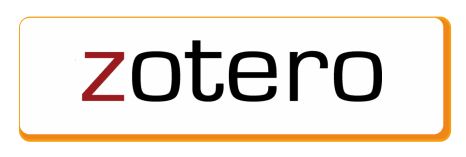Efektivitas Teknik Cognitive Restructuring Untuk Menurunkan Tingkat Kecemasan Siswa Saat Presentasi Di Depan Kelas Di MTs Al-Mukhlishin Galis
 Abstract views: 378
,
Abstract views: 378
,
 PDF downloads: 255
PDF downloads: 255
Abstract
Downloads
References
Aqillah, Mushaf, Al-Quran Terjemah dan Tafsir untuk Wanita Tafsir Ibnu Katsir, Tafsir Ath- Thabari, Asbabun Nuzul, Doa dan Zikir Sehari-Hari. Bandung: JABAL. 2010.
Budi Ra’I. Memilih Uji Statistik Dalam Penulisan Skripsi. Surabaya: Unesa University Press. 2000.
Corey, Gerald. Teori dan Praktek Konseling & Psikoterapi. Bandung: PT Refika Aditama. 2013.
Cristy, Chintia Diana, Dkk. Penggunaan Strategi Cognitive Restructuring (CR) Untuk Meningkatkan Efikasi Diri Siswa Kelas X-TSM-1 SMK Negeri 1 Mojokerto, Junal BK UNESA, Volume 04(01) 2013.
Damayanti, Rika, Dkk. Pengaruh Konseling Kognitif Perilaku Dengan Teknik Restruturisasi Kognitif Terhadap Harga Diri Peserta Didik Kelas VIII Di MTs N 2 Bandar Lampung, Jurnal Bimbingan dan Konseling, (Volume 3 (2), 2015.
Fajaruddin, Titin Indah Pratiwi, Penerapan Strategi Cognitive Restructuring Untuk Menurunkan Persepsi Negatif Terhadap Pelaksanaan Program Bimbingan dan Konseling Pada Siswa Kelas X SMA Negeri 1 Karangrejo Tulungagung, jurnal BK, Volume 06 (01), 2016.
Gunarsa, Singgih D. Psikologi Perawatan. Jakarta: PT BPK Gunung Mulia. 2008.
Manggala, Nico. 9 Terapi Untuk Kecemasan Berlebihan (Ansietas). Surabaya: CV Garuda Mas Sejahtera. 2015.
Nursalim, Mochammad. Strategi & Intervensi Konseling. Jakarta: PT Indeks. 2013.
Noviandari, Harwanti, Jawahirul Kawakib. Teknik Cognitive Restructuring Untuk Meningkatkan Self Efficacy Belajar Siswa. Jurnal Psikologi. Volume 3(2). 2006
Purwanto. Metodologi Penelitian Kuantitatif untuk Psikologi dan Pendidikan. Yogyakarta: PUSTAKA PELAJAR. 2008.
Sugiyono. Metode Penelitian Kuantitatif Kualitatif Dan R&D. Yogyakarta: Bandung: ALFABETA. 2010
Sulhan, Najib. Pembangunan Karakter Pada Anak Manajemen Pembelajaran Guru Menuju Sekolah Efektif. Surabaya: SIC Bekerja Sama Dengan Yayasan Al-Azhar Kelapa Gading Surabaya. 2006.
Susanto, Herri. Communication skills “Sukses Komunikasi, Presentasi, dan Berkarier”. Yogyakarta: CV Budi Utama. 2004.
The journal operates an Open Access policy under a Creative Commons Non-Commercial 4.0 International license. Authors who publish with this journal agree to the following terms:
- Authors retain copyright and grant the journal right of first publication with the work simultaneously licensed under a
 Commons Attribution-NonCommercial 4.0 International License
Commons Attribution-NonCommercial 4.0 International Licensethat allows others to share — copy and redistribute the material in any medium or format, and adapt — remix, transform, and build upon the material.
- Authors are able to enter into separate, additional contractual arrangements for the non-exclusive distribution of the journal's published version of the work (e.g., post it to an institutional repository or publish it in a book), with an acknowledgement of its initial publication in this journal.
- Authors are permitted and encouraged to post their work online (e.g., in institutional repositories or on their website) prior to and during the submission process, as it can lead to productive exchanges, as well as earlier and greater citation of published work (see The Effect of Open Access).



















